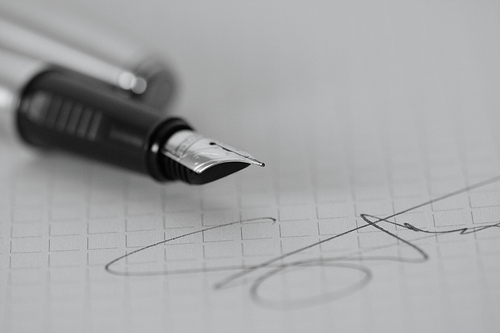Happy New year !
Here at TopAdmit, we're welcoming a new year and a new season with new tools to help you get into your dream schools. We now provide our students with a blog, offering material to help with writing all forms of essays and documents. If you want to know more about any topic, please leave us a comment and let us know. Our editors will gladly assist you with anything about which you are unclear.
Find out more at: http://www.topadmit.com/blog/
“Think a little bit more, and always go the extra mile” (TopAdmit)
Writing tip of the week
Salutations and closings
When opening and ending a letter or e-mail, people are often confused about the correct salutations or closings for any given situation. First, you should know if you are writing formally or informally. In a formal or semi-formal letter, the answer is usually straightforward; the appropriate phrase to use is always “dear”. Lots of people also use "dear" in emails and that's also acceptable.
Dear Top Admit.
Dear Mr. Johnson
If you are writing to a person whose name you do not know, it is common to address the person as "Sir or Madam"; another option is "To whom it may concern".
Dear Sir
Dear Sir or Madam (use if gender is unknown)
To whom it may concern
However, most professional editors and stylists will recommend you not use "Dear Sir or Madam" or "To Whom It May Concern". Instead, use either the title of the person you are emailing with "dear" if that's possible.
Dear Managing Director
Dear Contributing Editor
In any case, you should always make your best effort to find out the proper name of the person to whom you are writing. A salutation addressed to the reader personally is always more likely to be taken seriously than a form letter.
In e-mail, which is treated more akin to a memo than a formal letter in terms of style, it's also very common to use less formal salutations. This is certainly true if you know a person well, but also applies in professional communications or when contacting a company.
Hi Jack.
Hey Jack.
Closing a letter is a little more tricky; depending on the writer's relationship with the person, closing can be accomplished in many different ways.
The most common closing for formal or semi-formal letters is "sincerely" or "sincerely yours". These closings will always be appropriate for professional correspondence in email or written letters. Variations, including "yours faithfully" or "yours sincerely" are more common in British English.
"Best regards" or "regards" is commonly used in e-mail whether it is formal or informal, and is another ready standard. In all but the most formal situations, it is also acceptable to close an email with a simple "thank you".



 English
English 繁體中文
繁體中文 日本語
日本語 한국어
한국어